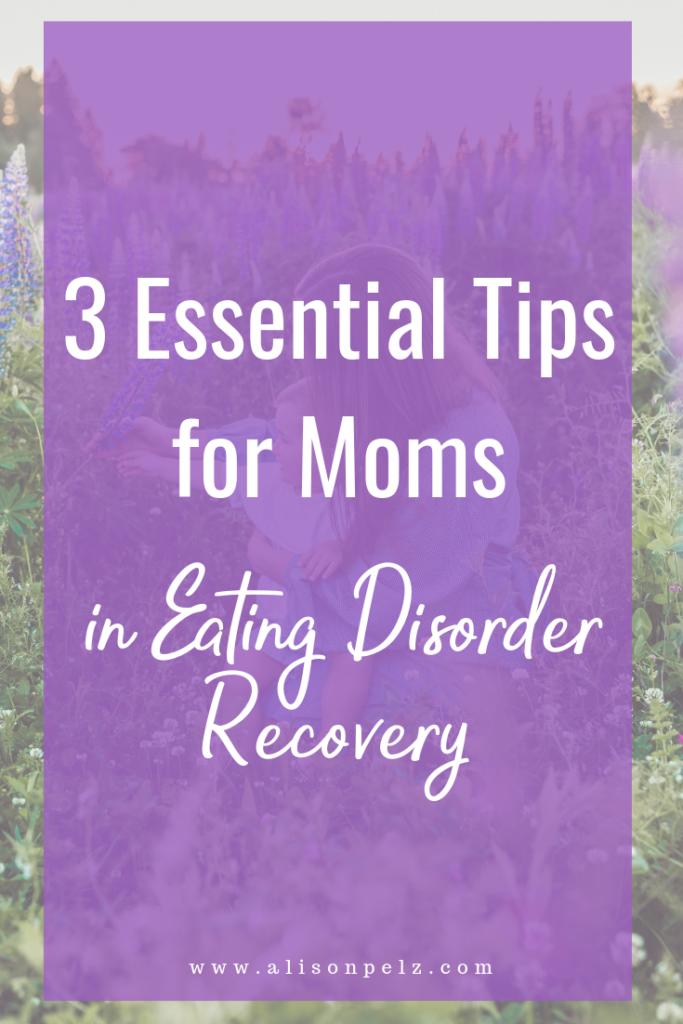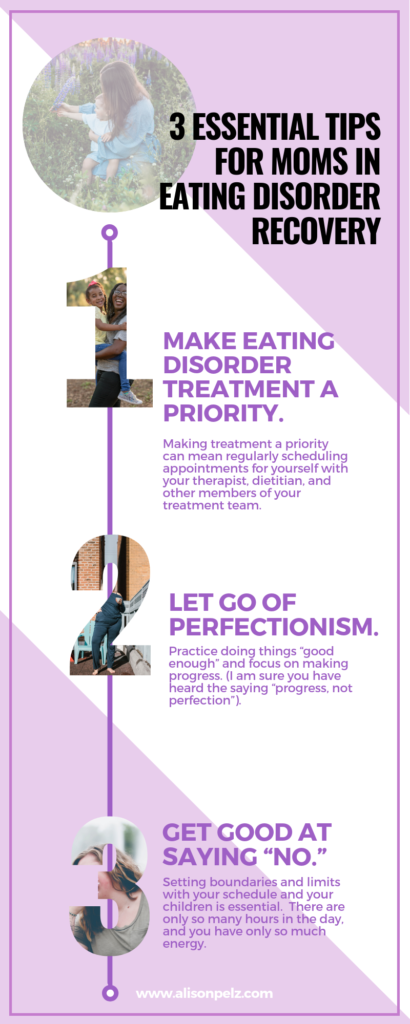Often, teenage girls are most associated with eating disorders. While it is true that eating disorders often develop in adolescence, they still affect people of all ages. Motherhood, unfortunately, does not immunize us from eating disorders, either.
There are three common circumstances in which adults suffer from eating disorders:
- The eating disorder developed in adolescence or in young adulthood and the individual never fully recovered or never received treatment.
- The eating disorder developed earlier on in life and it re-occured in midlife.
- The initial onset of the eating disorder occurred in adulthood.
In my counseling practice, I exclusively see adults with eating disorders, and many of my clients are also moms.
Motherhood presents a unique set challenge for individuals suffering from an eating disorder. Although, becoming a mother is associated with great excitement, it also comes with some stressors.
New moms are learning how to navigate their new identify while maintaining old identities of partner, friend, employee, etc. Because of this, parents often feel like they are being pulled in a million different directions.
Furthermore, normal changes in the body that are associated with pregnancy and beyond can be particularly stressful for some with an active or history of an eating disorder.
Change is a constant as a parent. As children grow, their needs change, and so do our roles as parent. Change along with with other stressors can trigger or exacerbate eating disorder symptoms.
Below there three basic tips to navigating motherhood while in eating disorder recovery.
1). Make eating disorder treatment a priority.
Moms are often pulled in several different directions, busy taking care of everything and everyone. Motherhood does not leave much time for self-care let alone recovery.
Making treatment a priority can mean regularly scheduling appointments for yourself with your therapist, dietitian, and other members of your treatment team.
2). Let go of perfectionism.
Perfectionist traits are often associated with eating disorders. Furthermore, motherhood at times can feel like a competitive sport, which can reinforce perfectionism.
Perfectionism is a never-ending cycle of setting very high and rigid stands in efforts to control and boost self-esteem, and when impossibly high standards aren’t met, feelings of failure set in, and the cycle of perfectionism begins all over again.
Practice doing things “good enough” and focus on making progress. (I am sure you have heard the saying “progress, not perfection”). For more tips on how to overcome perfectionism, click here.
3). Get good at saying “no.”
Setting boundaries and limits with your schedule and your children is essential. There are only so many hours in the day, and you have only so much energy.
It is easy to let your recovery get sidetracked with over scheduling yourself.
One important part of setting boundaries is first assessing what the most important things are to you: where do you want to spend your energy and time? Second, once your priorities are established, get good at saying no to things that aren’t on your priority list.
So often, there is fear around saying no due to fear of hurting others, appearing selfish, or missing out. Once you practice saying no, I think you will learn that none of these fears pan out.
Reserving energy and time to focus on your recovery is not selfish. When you are actively working on your eating disorder recovery and taking care of yourself, you will be more available to be a stronger mother, partner, and friend.
Please call for a free 15-minute phone consultation to learn how I work with clients with eating disorders.
Don’t live in the Austin Area, but want tips about how to improve your relationship with food and your body? Subscribe to my newsletter here.


